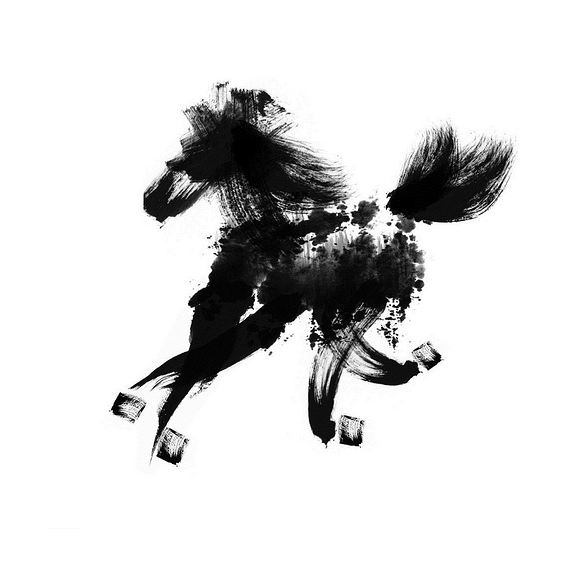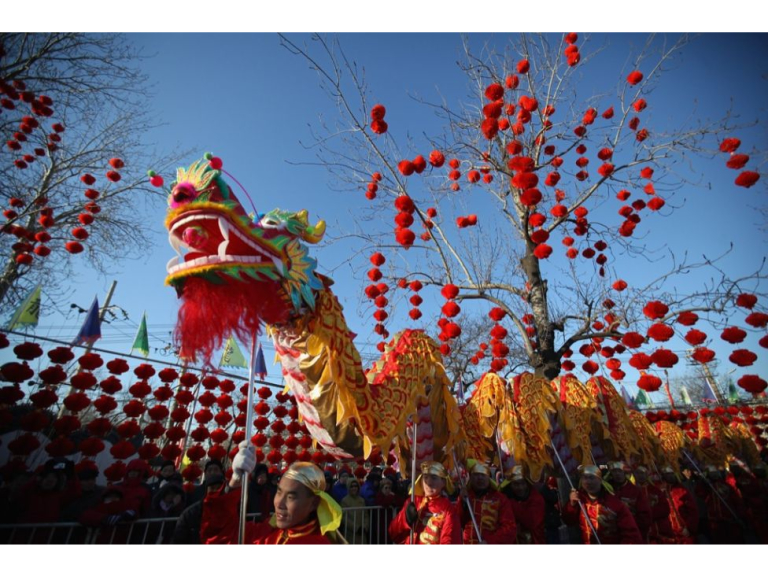





Did you ever wonder why the Chinese New Year is symbolised by different animals? Legend has it, that many years ago, Buddha asked all animals to meet with him during the Chinese New Year. Only twelve came and in return for their presence, Buddha named a year after each one. He explained that each individual born under a particular year would possess aspects of the appropriate animal’s personality.
2014 is the year of the wood horse. Famous individuals born under the year of the horse include; Nelson Mandela, Harrison Ford, Rembrandt, Neil Armstrong and Barbara Streisand.
The horse represents the 7th position in the Chinese zodiac. Individuals born during the year of the horse are said to possess strength, energy and an outgoing nature. Horses are crowd pleasers and enjoy being the centre of attention, the very life and soul of the party. Known for their intelligence, individuals born under this sign are quick learners and opportunists. Horses do not like taking orders; they enjoy power, they are leaders rather than followers.
Excuse the pun, but in early life horses are known to ‘play the field’ and fall in love often. Later in life, horses prefer stability and lasting relationships. Individuals born under this sign are said to be most compatible with dogs and tigers and least compatible with rats and monkeys. I am born under the sign of the dragon. Dragons are said to be most compatible with monkeys and oddly enough my boyfriend is a monkey! There must be some truth in it!
Food is represented by symbolism in China, for example, bamboo shoots represent wealth and lychee nuts symbolise a strong family bond. It is therefore no surprise that when it comes to New Year; many dishes are selected for their messages of luck, wealth and prosperity.
Traditionally, a reunion dinner ‘Nian Ye Fan’ is held on New Year’s Eve, this dinner is an opportunity for families to come together and celebrate. Dishes served usually comprise of chicken, pork or fish and a communal hot pot is cooked, symbolising togetherness. These meats are accompanied by rice, noodle and vegetable dishes. Noodles are lucky and represent a long life, they should therefore never be cut short!
Dumplings known as Jau Gok are served during Chinese New Year. The dumplings are designed to resemble ancient Chinese gold ingots. Another traditional dish which is served, predominantly in Eastern China, is Niangao, a New Year’s Cake made of rice flour, sugar, water, salt and what starch.
If you are hosting a Chinese New Year’s celebration and would like to serve appetisers to your guests; clams and spring rolls are a good option. Both symbolise wealth and prosperity; clams are said to look like coins and spring rolls like bars of gold . Tangerines are traditionally passed out freely to friends and family and are said to bring luck.
- Fireworks and firecrackers are set off; the loud noises which result from the explosions are said scare away evil spirits.
- Music is played, like any good party, it’s all about the tunes.
- The streets are decorated with red paper lanterns.
- Houses are filled with symbolic flowers including; plum blossoms (luck), Narcissus (prosperity) and sun flowers (best wishes for the New Year).
- Red envelopes are passed out to unmarried juniors from the elderly and married couples. These packets are known as ‘yàsuìqián’ which translates as ‘money used to suppress evil spirits’. The packets tend to contain money, often sums which include the numbers ‘8’ and ‘6’, both are considered lucky in China.
- Red clothing is traditionally worn. The colour red scares away evil spirits and bad fortune.
- Family portraits are taken each year, the most senior male in the family is always centred in the middle of the photograph.
- Dragon dance/lion dance. The loud drumming, clash of the symbols and the dance of the Lion or Dragon is said to eliminate evil spirits.
Traditionally, Chinese New Year celebrations start on the 23rd day of the 12th lunar month and the festival ends on the 15th day of the first lunar month in the following year as dictated by the Chinese calendar. The 2014 Chinese New Year falls on January 31st.
Perhaps you are from China but are now living in Scotland? Perhaps you have a group of friends from China? Perhaps you were born under the year of the horse? Why not throw a Chinese New Year party for all your friends and family? Embrace the spirit of the horse and please the crowd; what better way to start New Year than as the life and soul of the party?
Natalie joined The Best Of team in November 2013 as their new marketing assistant. Natalie has an undergraduate degree in law and a postgraduate degree in management. In her spare time she enjoys horse...
The following Cookies are used on this Site. Users who allow all the Cookies will enjoy the best experience and all functionality on the Site will be available to you.
You can choose to disable any of the Cookies by un-ticking the box below but if you do so your experience with the Site is likely to be diminished.
In order to interact with this site.
To help us to measure how users interact with content and pages on the Site so we can make
things better.
To show content from Google Maps.
To show content from YouTube.
To show content from Vimeo.
To share content across multiple platforms.
To view and book events.
To show user avatars and twitter feeds.
To show content from TourMkr.
To interact with Facebook.
To show content from WalkInto.